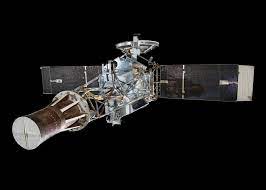On January 8, 1918, a significant event unfolded on the Western Front of World War I – the Allies' counter-attack against German forces. This counter-offensive, known as the Battle of Cambrai, marked a crucial turning point in the war and had far-reaching consequences for both sides involved.
By late 1917, the war had reached a stalemate on the Western Front, with both sides entrenched in a series of fortified positions. The German forces, led by General Erich Ludendorff, sought to break the deadlock by launching a major offensive in March 1918, known as the Spring Offensive. This offensive aimed to strike a decisive blow against the Allies and force them into a negotiated peace.
The Spring Offensive initially achieved significant gains for the German forces, pushing the Allies back and causing widespread panic. However, by the end of 1918, the German advance had faltered, and their troops were stretched thin across a vast front. The Allies, led by General Sir Julian Byng, recognized this vulnerability and planned a counter-attack to regain lost ground.
The Battle of Cambrai began on January 8, 1918, with a massive artillery bombardment by the Allies. This was followed by a coordinated assault involving tanks, infantry, and aircraft. The Allies aimed to break through the German lines and regain control of the strategically important town of Cambrai, located in northern France.
The use of tanks played a crucial role in the Allies' counter-attack. The British employed over 350 tanks, including the newly developed Mark IV tank, to spearhead the assault. These tanks provided crucial firepower and protection for the advancing infantry, allowing them to overcome German defenses and gain ground.
The Battle of Cambrai witnessed fierce fighting and heavy casualties on both sides. The German forces, caught off guard by the ferocity of the Allied assault, struggled to mount an effective defense. The Allies, on the other hand, faced well-entrenched German positions and had to contend with enemy artillery and machine gun fire.
Despite the challenges, the Allies made significant gains during the Battle of Cambrai. They managed to break through the German lines and recapture several key positions. The town of Cambrai itself fell into Allied hands after several days of intense fighting. The success of the counter-attack demonstrated the resilience and determination of the Allies in the face of German aggression.
The Battle of Cambrai had significant implications for the outcome of World War I. The Allies' successful counter-attack boosted their morale and dealt a blow to German confidence. It also marked a shift in momentum on the Western Front, with the Allies regaining the initiative and pushing the German forces back.
Furthermore, the Battle of Cambrai highlighted the importance of combined arms tactics, with tanks, infantry, artillery, and aircraft working together to achieve victory. This battle served as a blueprint for future offensives and influenced military strategies in subsequent conflicts.






